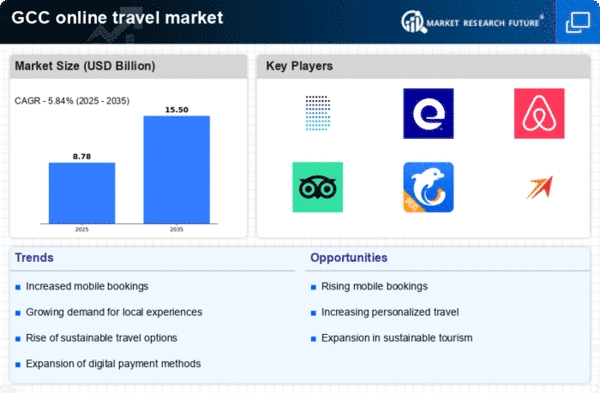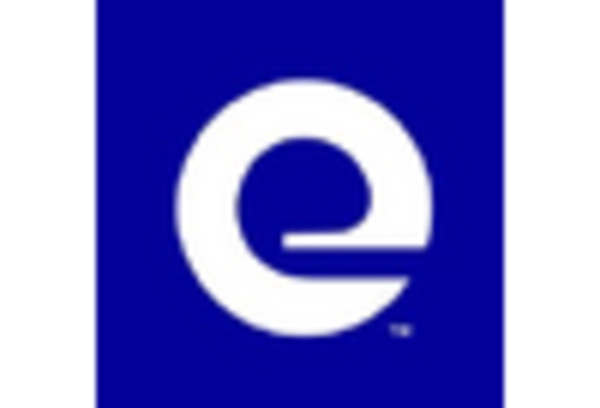Evolving Consumer Preferences
Consumer preferences in the GCC are evolving, significantly impacting the online travel market. Travelers are increasingly seeking unique and personalized experiences, moving away from traditional package deals. This shift is reflected in the growing demand for customized itineraries and niche travel options, such as adventure tourism and cultural experiences. Data indicates that around 60% of travelers in the region prefer tailored travel solutions, which presents opportunities for online travel platforms to innovate and cater to these desires. As consumers prioritize experiences over material goods, the online travel market is likely to adapt by offering more diverse and specialized travel options.
Rise of Social Media Influence
The influence of social media on travel decisions is becoming increasingly pronounced within the online travel market. Platforms such as Instagram and Facebook serve as vital tools for travelers seeking inspiration and recommendations. Approximately 70% of travelers in the GCC report that social media significantly impacts their travel choices. This trend encourages online travel agencies to leverage social media marketing strategies to engage potential customers. By showcasing user-generated content and travel experiences, these platforms can enhance their visibility and attract a broader audience. The integration of social media into travel planning is likely to reshape how consumers interact with online travel services.
Increasing Internet Penetration
The online travel market in the GCC is experiencing a notable surge due to increasing internet penetration across the region. As of 2025, internet penetration in GCC countries stands at approximately 99%, facilitating seamless access to travel platforms. This high connectivity enables consumers to explore and book travel options conveniently. The proliferation of smartphones further enhances this trend, as mobile devices account for a significant portion of online bookings. With more users engaging in digital travel planning, the online travel market is poised for substantial growth. The ease of access to information and services online is likely to drive consumer confidence, leading to increased spending on travel-related services.
Adoption of Advanced Technologies
The adoption of advanced technologies is transforming the online travel market in the GCC. Innovations such as artificial intelligence, machine learning, and big data analytics are being utilized to enhance customer experiences. These technologies enable travel platforms to offer personalized recommendations and streamline booking processes. For instance, AI-driven chatbots are increasingly employed to assist customers in real-time, improving service efficiency. As the online travel market continues to embrace these technological advancements, it is expected that customer satisfaction will rise, leading to increased loyalty and repeat bookings. The integration of technology into travel services is likely to redefine the competitive landscape.
Government Initiatives and Support
Government initiatives in the GCC are playing a crucial role in shaping the online travel market. Various countries are investing in tourism infrastructure and promoting travel through strategic campaigns. For instance, the UAE government has launched initiatives aimed at boosting tourism, which is expected to contribute approximately $50 billion to the economy by 2027. Such support not only enhances the travel experience but also encourages online bookings as consumers are more likely to explore destinations that are actively promoted. The alignment of government policies with tourism goals is likely to foster a conducive environment for the online travel market to thrive.
















